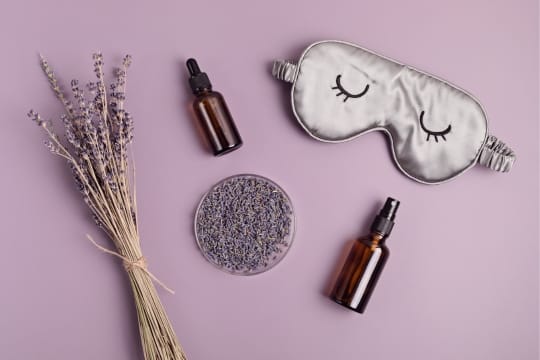A good night’s sleep is essential for our overall well-being, yet many people struggle with sleep-related issues. If you find yourself tossing and turning in bed, unable to relax and fall asleep, aromatherapy might be the solution you’ve been looking for.
Aromatherapy is a natural and holistic approach to improving sleep quality by utilizing the therapeutic properties of essential oils. In this blog post, we will explore how aromatherapy works, its benefits, and how it can help you achieve a better night’s sleep.
How does aromatherapy work?
Aromatherapy harnesses the power of essential oils, which are extracted from various plants, flowers, and herbs. These oils contain concentrated compounds that possess therapeutic properties.
When used in aromatherapy, the essential oils are typically inhaled or applied topically. Inhalation is the most common method as it allows the molecules of the oil to reach the limbic system in the brain, which plays a crucial role in regulating emotions and sleep patterns.
Benefits of aromatherapy
Aromatherapy offers numerous benefits beyond its ability to promote sleep. Some of the key advantages include stress reduction, relaxation, mood enhancement, and improved overall well-being. The specific benefits vary depending on the essential oil used.
For example, lavender oil is well-known for its calming and sedative properties, making it an excellent choice for promoting sleep. Other essential oils like chamomile, ylang-ylang, and bergamot also possess relaxing and anxiety-reducing qualities, making them beneficial for those struggling with insomnia or restless sleep.
How aromatherapy helps a better night’s sleep
Aromatherapy aids in achieving a better night’s sleep by addressing the underlying causes of sleep disturbances. The soothing and calming scents of essential oils help to relax the mind and body, creating an ideal environment for sleep.
Aromatherapy can help reduce anxiety, alleviate stress, and promote feelings of tranquility, all of which are essential for falling asleep and staying asleep throughout the night.
Additionally, certain essential oils have specific sleep-enhancing properties. Lavender oil, for instance, has been widely studied for its ability to improve sleep quality and duration. Research has shown that inhaling lavender oil before bedtime can lead to deeper sleep, reduced awakenings, and increased feelings of refreshed energy upon waking.
Methods of aromatherapy to try
There are various methods of using aromatherapy to aid in sleep. Here are two effective techniques:
- Facial steaming and compresses: Add a few drops of your chosen essential oil, such as lavender or chamomile, to a bowl of steaming water. Lean over the bowl with a towel covering your head to create a steam tent. Inhale deeply for a few minutes to enjoy the calming aroma. Alternatively, you can soak a cloth in a diluted essential oil solution and place it on your forehead or neck for a soothing compress.
- Aromatic baths: Add several drops of essential oil to a warm bath and soak for at least 20 minutes before bedtime. The warm water and aromatherapy blend will help relax your body and mind, preparing you for a restful night’s sleep. Popular choices for a relaxing bath include lavender, vetiver, and sandalwood essential oils.
Are there downsides or risks to using aromatherapy?
While aromatherapy is generally safe and well-tolerated, it’s important to exercise caution when using essential oils. Some individuals may be sensitive or allergic to certain oils, so it’s advisable to perform a patch test before applying them topically. Pregnant women, children, and individuals with underlying health conditions should consult with a healthcare professional before using aromatherapy.
Additionally, essential oils should be properly diluted before applying to the skin to avoid irritation or adverse reactions. It’s crucial to follow the recommended dilution ratios and guidelines provided by reputable sources.
Aromatherapy at Ishkama offers a natural and effective way to promote better sleep and improve overall well-being. By harnessing the therapeutic properties of essential oils, you can create a soothing and relaxing environment conducive to a good night’s sleep.
Whether you choose to use facial steaming, aromatic baths, or other aromatherapy techniques, incorporating this holistic practice into your sleep routine can have a profound positive impact on your sleep quality and overall health.
So, why not give aromatherapy a try and experience the wonders of restful sleep? Sweet dreams await!

